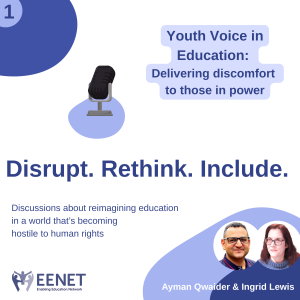In solidarity with INEE members in Sudan, INEE has put together a crisis spotlight on education in Sudan. The spotlight page includes:
- A brief overview of the crisis
- A call to action developed in collaboration with Sudanese civil society organizations
- An advocacy webinar amplifying the voices of teachers, learners, practitioners, and policy makers in Sudan
- An social media toolkit to support your advocacy efforts
- A series of blogs sharing good practice and lessons learned from education interventions in Sudan
- A list of relevant tools and resources for education actors working in Sudan and with the Sudanese diaspora

